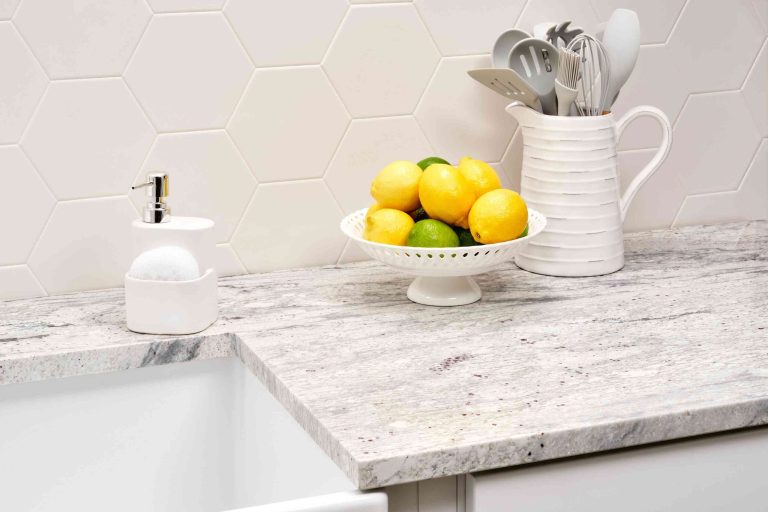Marble is a gorgeous material that can serve as a long-lasting and attractive feature in your bathroom or kitchen. However, once your dream of having marble countertops installed is fulfilled, you may be wondering how to clean them without damaging them. Because marble is a porous material, the products and techniques you use to clean the other hard surfaces in your home may actually end up ruining it. Of course, you could hire a professional marble cleaning service to do it for you. But, if you prefer a more hands-on approach, read on for the dos and don’ts when cleaning your new marble countertops. Supplies You’ll Need You’ll need a few supplies to clean and maintain your marble countertops. Soap, water, hydrogen peroxide, ammonia, and a liquid cleaner are essential for daily cleaning. For maintenance, purchase a food-safe sealant for your marble kitchen countertops and #0000 steel wool. Following the guide below will help keep your marble sparkling clean and beautiful. Cleaning and Maintaining Marble Surfaces As we’ve mentioned, marble is more porous than other materials used to create countertops – such as quartz, granite, or soapstone. This means it is more prone to stains, scratches, and changes in the structure of the stone. To keep your marble countertops looking pristine, you’ll want to keep them clean and seal them regularly – more on this below. Preventing Damage Whether you have marble countertops in your bathroom or kitchen, sealing them every three months is the best way to maintain them. While sealants won’t make them completely stain-proof, they will make them more resistant to staining. Regular sealing will give you extra time to clean up spills as they won’t get absorbed by the stone right away. Contact the supplier of your marble countertops and ask for recommendations for the best marble sealants. If your marble is in your kitchen, it’s very important to make sure the sealant you use is food-safe. You should also invest in some coasters to prevent spills and watermarks from forming in the first place – prevention is always better than cure. Daily Cleaning For daily cleaning and spills you can clean immediately, use warm soapy water – just be sure to rinse the surface well so no soap residue remains and dry it thoroughly. Another thing to note is that acidic substances can damage marble – so keep acidic beverages like lemon juice and wine away from your countertops whenever possible. Acidic cleaning products that contain vinegar should also be avoided at all costs. If you do have spills on your marble, tend to them immediately. Abrasive substances can also ruin your marble, so always wipe it down with a soft cloth – trying not to drag dust and debris along the surface. Removing Stains If you can’t tend to a spill immediately, it might not be the end of the world. Most organic substances (like red wine, food, and fruit juice) can be cleaned with a solution of 12% hydrogen peroxide and a couple of drops of ammonia. For oily stains (like olive oil or butter), clean the surface gently with a liquid cleaning product that contains mineral spirits, acetone, or household detergents. Correcting Scuffs, Scratches, and Watermarks For scuffs, light scratches, watermarks, and nicks, dry-buff your marble countertops with #0000 steel wool. If you have deeper scratches that penetrate below surface level or stubborn acidic stains, you’ll need to call on a professional marble cleaning service.





